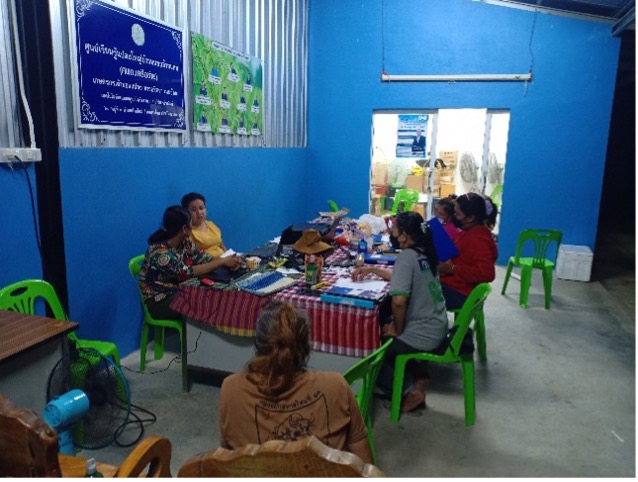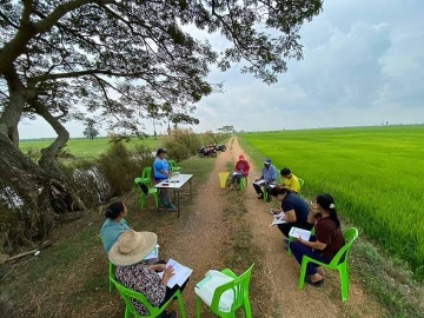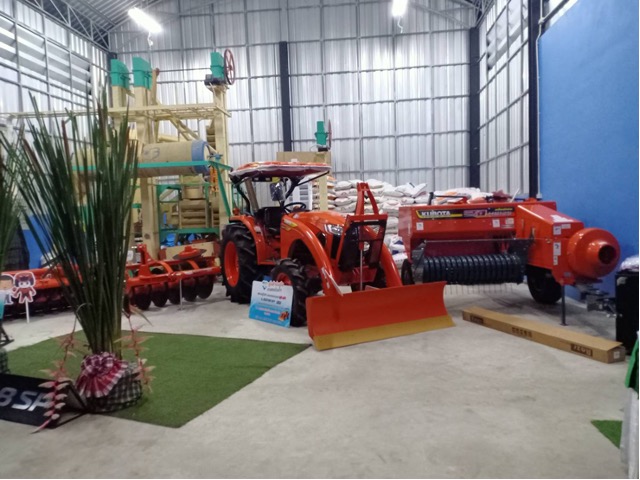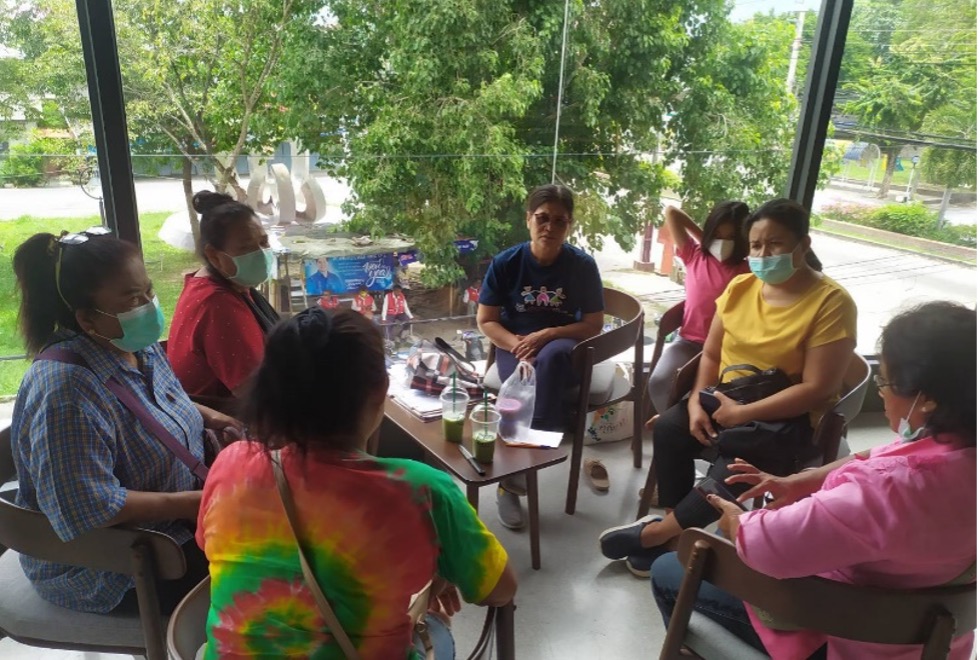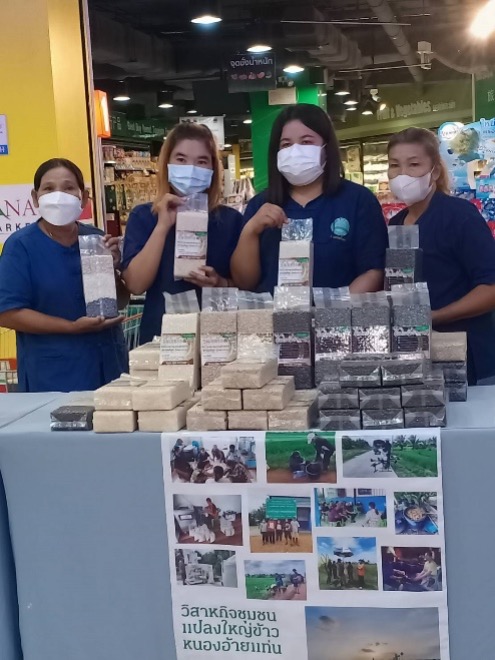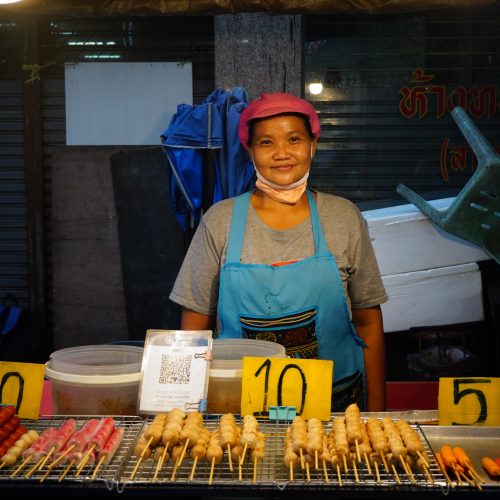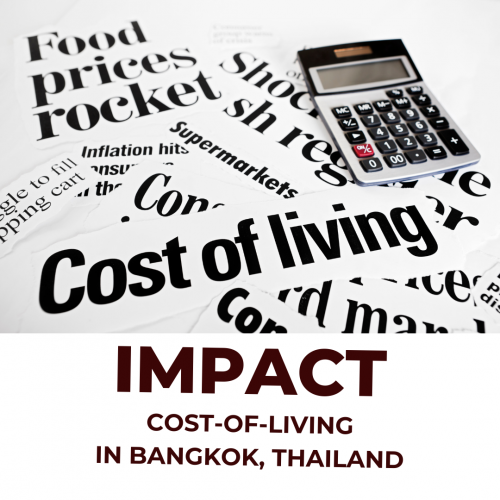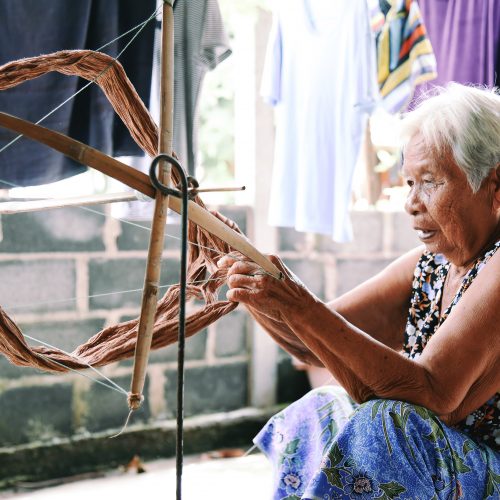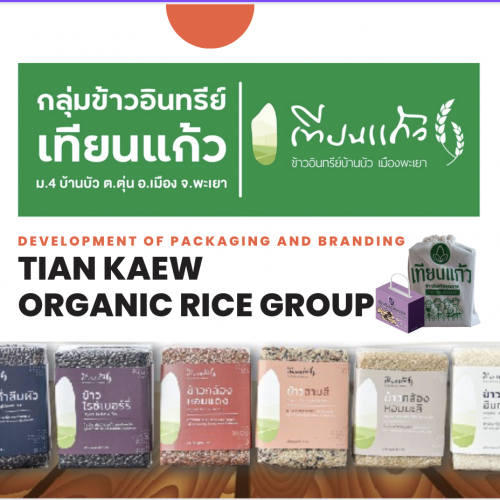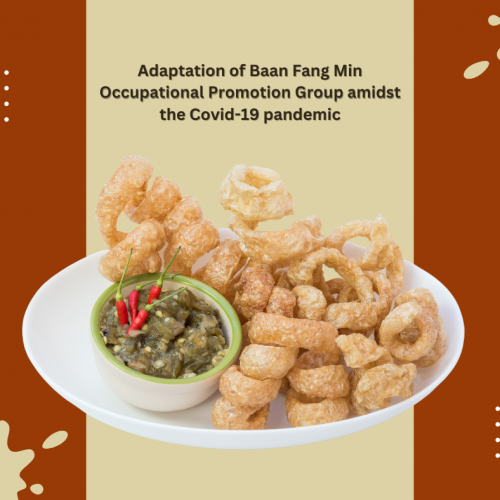Jantana Chareanviriiyapap
Homenet Thailand
April 2023
Network of Informal Workers in Songkhla Province
HomeNet Thailand has worked with informal workers in Songkhla province, which is in the southern part of Thailand. The targets with whom we work live in rural and urban areas. In rural areas, there are home-based workers and farmers groups. Meanwhile, informal workers who live in urban areas include groups of street vendors, motorcycle taxi drivers, beauticians, homebased workers such as garment homeworkers and casual workers. Main tasks of Homenet Thailand are to promote organizing and strengthening of informal workers organizations, policy advocacy, economic empowerment activities such as production skills development and marketing. Networking between informal workers from different sub-sectors is also introduced. As a result, there is an informal workers’ network was known as “The Informal Workers Network in Songkhla Province.”
The Rice Fund is one of the tangible samples from development of products, branding and marketing toward establishment of linkage of informal workers in the network. It creates mutual benefits between producers’ group (Pinto Khaw Group), traders (Leaders of the Rice Fund), and the consumers in urban areas who are members of the Informal workers Network and the urban poor who live in Songkhla City.
Initiative
Ranod District, Songkhla Province, is an important area to produce rice in the lower south region. There is approximately 70,000-80,000 Rai of rice planting areas (Data from Agricultural District, 2020). It was found that over the past decade, the rice fields have steadily decreased due to rising production costs, low paddy prices, and climate change, leading farmers to change their occupations or replacing rice fields with oil palm plantation.
From the issue that arose, farmers from Ban Mai and Takria sub-district formed the “Nong Ai Than Large-scale Agriculture Group.” In 2019, There are 36 members and 740 rai of areas. The group aims to increase productivity and reduce production costs. For instance, it will be less expensive to collectively buy seed rice under a group’s name than buying individually. Introduce technology and innovation to be used appropriately in increasing productivity and quality in the rice field. There is a collaboration in group management throughout the production chain, moving from production planning, processing, and marketing, including putting in place of the agricultural infrastructure. The development of production procedures that are secure and adhere to hygiene standards. The group has registered as a community enterprise.
In 2020, HomeNet Thailand had contributed to the development of the group’s capacity by setting up database system on production, developing rules and regulations of the group, and management structure.
In 2021, Nong Ai Than Large-scale Agriculture Group and HomeNet Thailand worked together to develop a proposal to request funding from the government under the project to enhance large-scale agriculture through modern agriculture and market connectivity. Obtained a 2,900,000 THB budget to construct a community rice mill, an agricultural drone, 1 agricultural vehicle, and packaging machines. Later, Kubota Co.,Ltd. also supported the tractor and a balers cost around 1,200,000 THB to the group.
Currently, Nong Ai Tan’s Large-scale Agriculture Group got a juristic person by registering as Ordinary Parentship. Main activities of the group are farming, drone services, providing seed rice to members, and rice processing under the “Pinto Khaw Brand.” Its slogan is “Produce by farmers, mill their own rice and sell rice on their own.”
Pinto Khaw Group’s has a clear management structure. A group committee has been nominated to share responsibility. There is bookkeeping which accountability on income and expense, available for transparency review as well as having a group regulation and profit-sharing rules. 25% of profit goes back to members as dividends, 10% is group management expenses, 10% is for public benefits, 15% is for social welfare of group’s members, and 40% is Investment Fund. At the same quality, the rice selling prices are set cheaper than general market price.
In 2022, HomeNet Thailand cooperate with the group committee in development of the marketing strategies, data collection, improving packaging, co-creation of the group logo and branding. Homenet Thailand also provided trainings on finance and accounting as well as online marketing. Meanwhile, supporting the networking of informal workers groups in Songkhla Province. Facilitation of learning, exchange and sharing experiences platform which can create mutual help planning amongst the network members.
Turning point
During the COVID-19 crisis, it was hard hit to livelihood of informal workers in Songkhla City such as garment workers, beauticians, street vendors, and motorcycle taxi drivers. The Network of Informal Workers in Songkhla Province called a meeting to discuss how to support its members on food security. There were two ways of implementation. Firstly, promote city farming by growing vegetables around members’ houses. Secondly, promote establishment of the Rice Fund to mitigate hunger among members. The idea was trialed in 2022, with 4 leaders and 400 kg. of rice.
The Rice Fund means a life connection that connects members from different occupations in the Network of Informal Workers in Songkhla Province. Pinto Khaw Group has rice, while members in the city also need to eat it. Linking producers and consumers together under the Social and Solidarity Economy Principle, peer assist peer, trust, and mutual benefit. Pinto Khaw Group produces fresh, aromatic rice at a lower price than the market by milling rice according to orders. Without any insecticide, rice will be delivered to leaders in the city and distributed to consumers who are mostly urban working poor. Additionally, a portion of earnings is set aside to assist members in need.
The Rice Fund is operated by identified a trade leader, she/he will look for a cluster of 10 consumers who are members of occupational groups in the Informal Workers Network or her/his kinship or other community members. A cluster of consumers will buy rice through its trade leader twice a month. Currently, the Rice Fund has identified 7 trade leaders who can sell rice to cover more than 100 beneficiaries. In each time, one trade leader distributed about 300–400 kg of rice within her/his cluster. In the buying and selling process, the group will deduct 1 THB of profit per kilogram of rice and keep it in the Rice Fund. The Rice Fund aims to be utilized its saving to assist members of the Networked of informal Workers in Songkhla Province when facing difficulty circumstance.
Challenges
The Pinto Khaw Group has insufficient revolving fund to buy paddy from members. Most of the paddy must be sold to the merchant. There were shortage of rice selling in the network market, the group can’t consistency deliver rice to consumers from all clusters. Moreover, all trade leaders and most of the members are women workers, it is trouble for them to lift heavy rice.
Results
- The Rice Fund is one of the concretes development practices, starting from business development and end up at mutual help among members of the informal workers’ network. Linkage between producers’ group (Pinto Khaw Group) who sells rice at the desired price, the trade leaders who gain profit from selling rice. The clusters of consumers who are members of the Network of Informal Workers and the urban poor who live in Songkhla city, can buy quality rice at a fair price. Benefits from operating the Rice Fund are distributed fairly in the marketing chain. It helps creating strong relationship among members of the network and creating lining platform for learning and sharing between members of the network.
- When purchasing 1 Kilogram of rice, the group deducts 1 THB of income as a fund to support the network members facing difficult times. Currently, there are about 4,000 THB available. It becomes an innovative idea to develop the network welfare.
- Linking the networks of informal workers in Songkhla through the Rice Fund has inspired group members on the benefits from organizing and working together.
